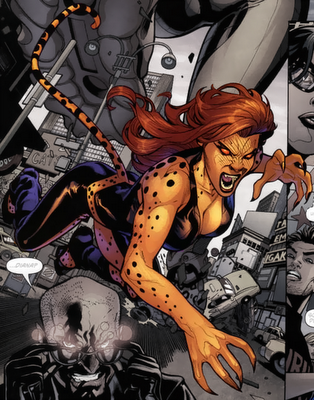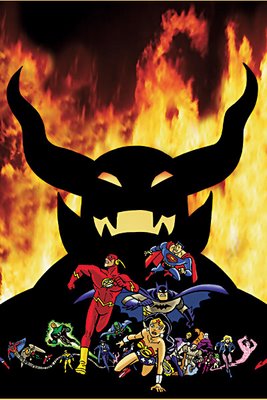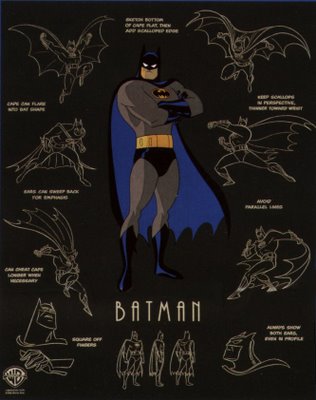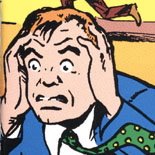Republished from the old blog. First written two years ago, and depressingly I only had to update how long it's been since the attacks. Check back tomorrow for comics...
There is a hole in New York City.
A massive, gaping maw--ugly, unnatural, terrifying. It sinks, 200 feet into the ground. And rises, one hundred and ten stories into the air. It is awe-filled and awful, a horrific scar from an unforgivable, still bleeding wound.I wish I could say no one else has noticed it.
But I'm hardly the first person to write about the World Trade Center attacks. I doubt I'll be the last. It's rare that you have an event that you know, even as you watch it happening on TV, you know will be remembered. It's the Kennedy Assassination, Pearl Harbor, and Mt. St. Helens, all in one.
In a way, we were looking for it. I'm not saying we invited it or brought it on ourselves. But I remember waiting in line for the Star Wars re-release and hearing people tell me that Star Wars was this generation's Vietnam, or that I'll always remember where I was when I heard the O.J. verdict, like my Dad remembers hearing on the radio about the President being shot. In the terrible era of Clinton, we had no real milestones of war or civil rights marches or national tragedies to say, "I was alive when...." Well, wish granted. I was alive for September 11th, and all I got was this lousy government.
And 9/11 is so big, so much bigger than the usual things we think of as tragedies, that everyone feels that it was their tragedy, their wound, their loss. The next day happened to be the first day of classes for my senior year of college. And what I remember was that every professor I went to somehow thought that their subject was the one that would explain what happened or help us deal with our loss. It didn't matter if it was a class on 19th century Gothic literature, genetics, or early American poetry; their subject was the lens to describe "yesterday's tragic events" ("The tragic events of the 11th" seemed to be the only way to describe what was not a bombing and what was not simply an attack on New York, before we settled on the short hand "9/11").
It takes a certain amount of ego to make the largest terrorist attack on American soil about you. The security you see going up at museums, businesses, schools, has less to do with a real threat and more to do with a bizarrely high opinion of one's own worth. 9/11 took years to plan, hundreds of millions of dollars to finance, and incredible patience and luck to pull off, in order to destroy two of the tallest buildings in the world, the Pentagon, and, some people assume, the White House. Do you think Al Qaeda is really going to waste that kind of effort trying to destroy your pathetic office?
In fact, for most of us, the attack is still pretty abstract. Unless you were actually in the Pentagon, downtown New York, or on those planes, or knew someone who was, the carnage and destruction was something you saw on TV, as remote as an earthquake in Tehran, a flood in India, a war in Chechnya. So it's not my tragedy. It's only my reflections of too many other people's tragedy. So I can only tell my 9/11, which has nothing to do with anything real.
I certainly remember how I first heard about it. The first thing my computer does when I turn it on is open the New York Times webpage. It does it so I can stay informed (In 1998, I was very upset that I didn't know we were bombing Bagdad) and to check my web connection, because the site is generally the fastest one on the web. But clearly something wasn't right, because the page was incredibly slow. In fact, only one sentence had come through intact, "Plane flies into World Trade Center," which was the caption for a picture I never saw. I thought that was tragically funny, like the plane that flew into the Empire State Building in the 40s. I got up and showered, and as I was brushing my teeth I could hear the girls in the adjacent bathroom talk about how the towers fell down. I didn't believe it, but it was starting to sink in that something real had happened.
Even when I got the facts, and there were scant few facts in those first hours, I didn't get it. I saw a room full of people, watching CNN, seeing the flames and destruction over and over again, weeping openly and cradling each other in their arms. And I remember not feeling that sad. I remember people assuming over 20,000 people had been killed, and I knew instinctively that that number was too high. I remember the first joke I told. At lunch, we were wondering what Steve Sachs, Crimson editor, was going to write in his opinion column. And I said, what other opinion could there be, quote, "The other tower should have ducked"? And we broke into hysterical, full-bellied laughter. Funny, it doesn't seem all that funny now, but trust me, it was great humor then.
But when I finally learned who was behind the attack, that it was a stateless, fundamental Islamic terrorist organization, my first and only thought was, "No good can come of this." We were a wounded beast, and we were going to lash out blindly at the world at a time when we could ill afford to do that. We were going to go crusading, and Israel was going to get trampled, again. Bush was going to use and abuse this tragedy to cement his own power, push through his radical agenda, and lead this nation to ruin. I had read about moments like this, Rome under Nero, Russia under Stalin, Cuba under Castro. Now I would actually get the chance to watch it happen before my very eyes. Woo hoo. Oh boy.
People assured me I was wrong. "This is the wake-up call," they said. "This will unite the world," they said. "This will bring peace." Or, at the very least, we will finally go after those bastards, like the Taliban, that protect these killers. I tried to ease my mind with that. And when Kabul came under American control, or when Saddam's statue and stature fell, I thought, well, there's something good. 'Cause I thought that Bush might be an autocratic war hawk, but at least he was an effective one.
Now I know better. Now I know that Bush was never as committed to establishing real governments as he was in making notches on his belt. Now I know that he diverted men, money, and equipment away from Afghanistan and the hunt for bin Laden and into Iraq. And that he didn't even divert enough men, money or equipment to ensure that we could keep Iraq under control long enough to rebuild it. And he did it in spite of the advice from the CIA, his generals, world leaders, and experts on war in the world at large.
I was always more worried about our response than I was about another attack. Because, like I said, the attacks were just an abstraction for me. That was then. Now I live in New York City, and I found myself in Battery Park, whose Winter Garden has a clear view into the rubble that was once a center of international trade. And what struck me, after the enormity of what was missing, was how little damage there was to the surrounding buildings. True, it's been five years and they may have gotten around to fixing some shattered windows. But the towers could have fallen sideways, like God's dominoes, smashing into building after building. Instead, they collapsed, pancaking floor by floor straight down, as they were designed to do.
That's what hit me. The buildings, as are all buildings built after Pearl Harbor, were designed to collapse the right way, with as little damage done to its neighbors as possible. As massive as the buildings were, as dominating, as central to the New York City skyline, they were designed with an end in mind. They, like every human on Earth, were here to go.
I hate when people tell me everything changed on 9/11. Nothing changed. Not even our perceptions of the world. Did we really feel safer when we held air raid drills and hoped our desks would protect us from nuclear annihilation? Did we feel safer after Columbine, after Oklahoma City, after the first World Trade Center bombing? Did we really take time to re-examine our role in the world, who our allies are, who our enemies are?
No, of course not. Scared out of our minds, we clung more desperately to our old beliefs, our old hatreds, our old prejudices. My 9/11 is a tragedy that started that day and has played out since then. Our blindness to the real world, our inability to face mistakes. I am going insane, because it isn't the end of the world, there is no revelation, and God isn't coming in the third act to lift the veil. We are just reliving the same mistakes, the same wars and the same abuses of power, over and over and over again. We are where we always are. Same shit, different day.
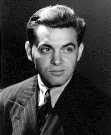






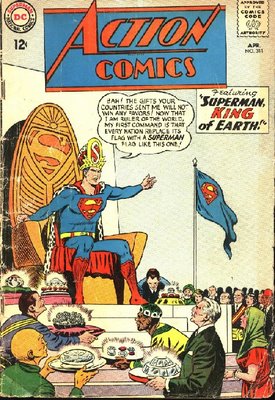
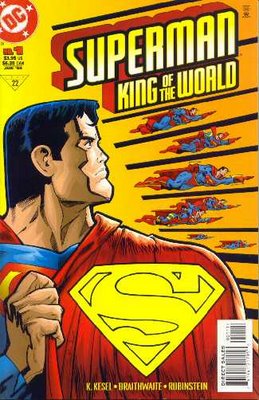
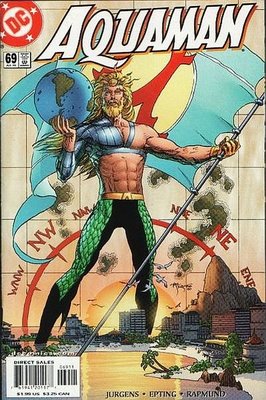

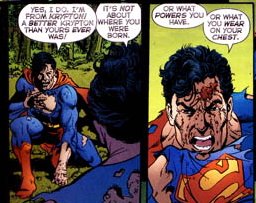
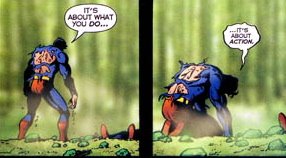


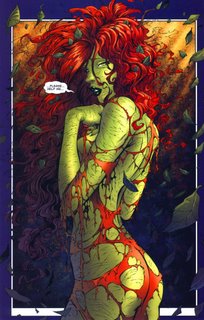

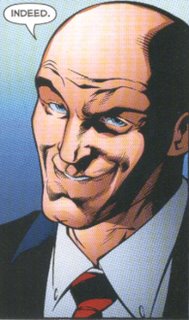 I'm watching the Dallas/Washington game and I notice that
I'm watching the Dallas/Washington game and I notice that 
